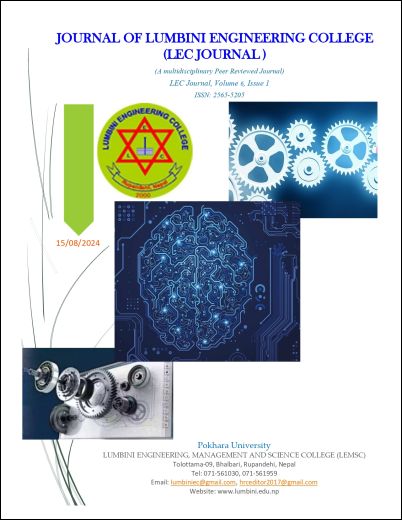Impact Assessment of Utility Relocation on Road Construction Projects: A Case Study Analysis
DOI:
https://doi.org/10.3126/lecj.v6i1.66279Keywords:
case study analysis, Utility relocation, road construction, impact assessment, challenges, time slippage, cost overruns, questionnaire surveyAbstract
Road construction projects often involve the relocation of utility services to accommodate the growing needs of society. However, the impact of these relocations on project performance has not been comprehensively studied. This research aims to assess the challenges and impacts of utility relocation on road construction projects. Data on the impact of utility relocations was gathered from case studies of seven road projects in various phases, including construction and completion. A total of 90 questionnaires were distributed, with a response rate of 77.78%, representing contractors, consultancy firms, and clients. Data analysis included mean and standar d deviation calculations, as well as correlation tests between the number of utility-related change orders, time slippage, and cost overruns. The findings indicate that, on average, utility relocation leads to a 555.78% increase in the utility budget and an average time slippage of 13.79%. The primary challenges in managing utility relocations in road projects include delays in commencing utility identification and relocation work, insufficient utilization of technological tools and software for utility visualization and management, delays in acquiring rights of way for utilities, and the need for rework or change orders. The most impactful utility issues in road construction projects include the failure to identify and characterize utility conflicts, infrequent updates of utility relocation estimates during project development, and changes in utility plans caused by late project design modifications. The study reveals a strong correlation between the number of utility-related change orders and time and cost overruns in road construction projects. Addressing these challenges and proactively managing utility relocations is crucial for enhancing the efficiency and cost-effectiveness of road construction projects.
Downloads
Downloads
Published
How to Cite
Issue
Section
License

This work is licensed under a Creative Commons Attribution-NonCommercial 4.0 International License.
This license allows reusers to distribute, remix, adapt, and build upon the material in any medium or format for non-commercial purposes only, and only so long as attribution is given to the creator.




